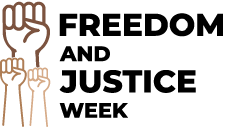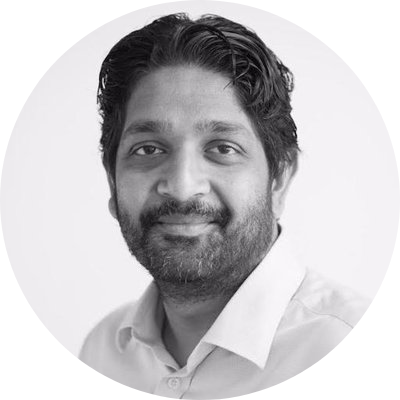
This article is part of our Freedom and Justice Week series – as Global Dashboard provides a platform for a diversity of voices to explore how we respond to the wave of protests that followed the murder of George Floyd. Read all the articles in the series here.
“Many words are walked in the world. Many worlds are made. Many worlds make us. There are words and worlds that are lies and injustices. There are words and worlds that are truthful and true. In the world of the powerful there is only room for the big and their helpers. In the world we want, everybody fits. The world we want is a world in which many worlds fit.”
Fourth Declaration of the Lacandon Jungle
In our dreams for a post-COVID world, what should we demand of our international relations and international public good institutions? What does it mean to de-colonise and transform development and humanitarian enterprise so that it is anti-racist within and without?
These questions have come to a head in the last weeks, as a movement that began with murder most foul has begun an overdue reckoning with deep structural racism.
We want to offer some thoughts.
Before we get to those, however, a brief anecdote. This week, a small UN entity considered putting out a statement in support of Black Lives Matter. The statement was carefully crafted to express support for human rights – as is appropriate for UN staff, who should not take positions against member states.
But it hasn’t happened. The staff were so worried about the potential impact that they voted it down. They feared alienating donors and losing the ability to do their genuinely valuable work. The problem is in part that the staff felt this way, in part with the leadership for not pushing and demonstrating their charter fundamentalism – that the core values of the UN Charter should trump other considerations. But most of all, it’s that the staff were probably right.
“What does it mean to de-colonise and transform development and humanitarian enterprise so that it is anti-racist within and without?”
What we know is this – we are a billion dollar industry invested into protecting the status quo. It is widely acknowledged that humanitarian decisions, for example, are not made on the basis of need, but rather in a triage of donor desires, human needs, and bureaucracy. But when asked to correct itself – to revisit its core assumptions and ideals (as happened with proposals to re-open the core humanitarian framework (known as resolution 46/182) in 2012) – they were rejected by the architects of the current system. Why? Because “not all the states will agree, and we’ll end up with less.” Yet if you look where we are today – with hospitals and civilians bombed with aplomb – it’s not clear what the legitimacy of these ideals is, or how that matters in practice.
This inability of a system to accept its illegitimacy is why we are dealing with a deep crisis of legitimacy. International order is not an abstract good – it was imagined by a particular group of people with a particular power structure, who cemented the power-relations of 1945 into its architecture. That’s a first principles problem.
But it also stems from the deep racism and classism that is fundamental to the institutions and their systems. To each specific institution, with its own quirks of exclusion (the French run peacekeeping; the Brits get OCHA and so forth). To their interactions, funding, and processes. To the decisions they make, and the vision of development, progress, and democracy they see in the world – refracted through a prism of a particular privilege and perspective. And from all of these emerges a complex, self-reinforcing culture, completely at odds with the mandates, missions, values, and professed principles.
Which gives us the worst possible outcome: at the moment of great change – a rare chance for a shift in power to be cemented, the patterns of exclusion are powerful. The institutional orthodoxy is radically exclusive. And therefore, the likelihood of positive change for the people who most need it is likely to be undermined by the self-appointed guardians of that dream.
“We take a charity lens to aid and development, rather than of justice and equity”
We have allowed shallow objectives of change, seen through narrow ideas of what this might look like, to permeate how we think of need, of resilience, of how people earn an income, of how people come together and care for each other, of binary concepts of gender and diversity, of tokenistic inclusion sentiments. We say ‘leave no-one behind’ as if it’s an accidental and surprising after-effect of crisis and disasters, rather than a deep seated, historical unseating that has colonial roots. We take a charity lens to aid and development, rather than of justice and equity – and work to improve ‘aid’ rather than address global tax injustice.
And the reality within these institutions is part of what has forced us to ask ourselves: have we done enough to fight the orthodoxy, hew to the deeper values of the Charter, and the Universal Declaration and confront these power imbalances? Or have we merely reinforced injustice by design, forcing minoritied groups to become ‘model minorities’ in order to get access, fit in, not make anyone uncomfortable? Did we lose our way and stop speaking to truth and power?
What we have done is we’ve self censored, like our friends in the anecdote above. This piece is, in part, the beginning of our atonement.
The strategic change work we see, particularly responding to COVID-19, fundamentally excludes minoritied groups and their lenses, is trivial on gender and disability, diminishes mental health and the role of communities, and in doing so, reifies the power of the powerful elite and their corporate interests.
“We want new values and new approaches, to challenge the how, the why, and the basic architecture of our work”
This cannot continue. We’re not going to delve into the technicalities and politics of reform; we’ve done so elsewhere. Rather, we want new values and new approaches, to challenge the how, the why, and the basic architecture of our work. Here are 5 simple ideas:
1. Acknowledge our flawed history. We have to own present and historical flaws in our processes, systems, institutions, and their visions, in order to preserve what may be valuable in their ideals. The UN Charter and the Universal Declaration may be fabulous documents that could help all people. The institutions and structures that are their guardians are not. Let’s call that out.
We draw an analogue here to what we see in the US. The mythology of the perfection of the constitution has prevented serious analysis of how and why it fails to protect its people. The same is true for monarchies…why do they still exist in the 21st century? For so many of our institutions, people prefer the romantic myths sanitised of the slavery that built them and the inequity they represent and propagate. We must face the truth and set aside these myths if we are to build a world in which everybody fits.
2. We need to build on a deeper, more intimate politics. We embrace Marie Berry and Milli Lake’s call for a politics grounded in intimacy, trust, collection, and care – a politics of love. It’s not just rhetoric. Re-imagining institutions so that they deliver care and love – how might that play out in prisons, or policing? How might that play out in development and humanitarian aid? Is a New York and Geneva-centred aid architecture a practice of cross community solidarity? Or of the preservation of power?
3. At the same time, we need to embrace anger and grief. We cannot continue to demand that policy and politics be ‘civil’, because, as we’ve seen, civility doesn’t keep black and minoritied people alive. It doesn’t dismantle power. By insisting on calm proposals, we translate that anger into pablum, into mediocrity, that intrinsically racist systems swallow, and excrete, neither changing because of it, nor being changed by it. Anger is also a face of love – self-love of the oppressed.
4. We must move beyond binary ‘gender and diversity’. Intersectional equity and justice is a fundamental truth. Our task is to address inequity and inequality. The counterweight to that is radical inclusion. It will go slower. It will not work in convenient logframes. It will respect the wishes of the people who lead. That’s how we begin – with the ethic of equity, inclusion, and justice as the core design principle, not the post-facto reporting.
5. Last, but not least, it is time for people who have benefited from colonial power and privilege, from extraction and looting, to step aside. Not just to share the money a little bit – but to decline what is offered and insist it is passed to BIPOC and minority-led groups and allow them to build without gatekeeping.
This will not look like the world that the people in power imagine. That’s the point.
Black lives matter BLM UNITED NATIONS: Photo: Jon Mannion, Flickr (CC BY-NC-ND 2.0)
Rahul Chandran writes here in his personal capacity.




